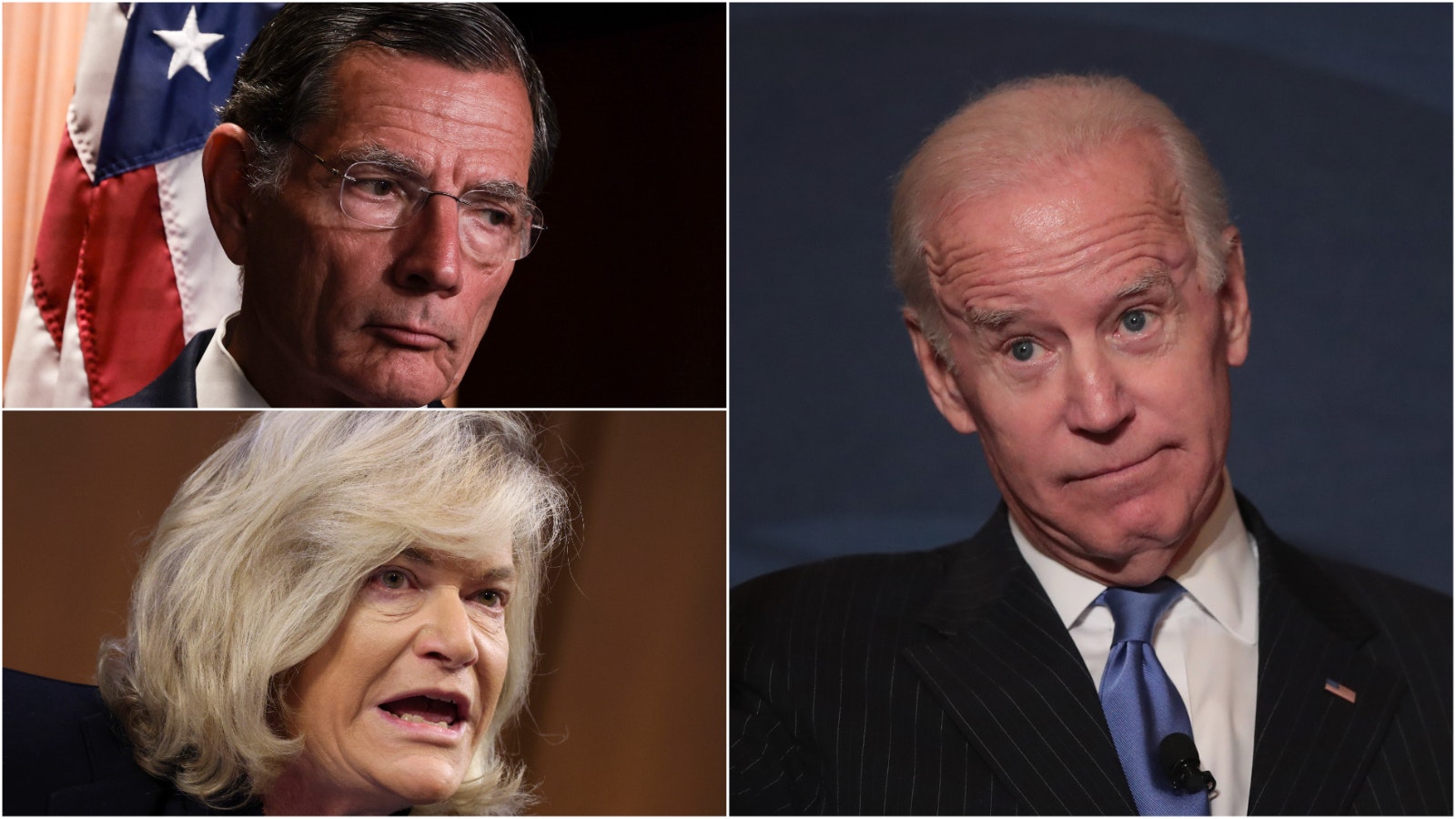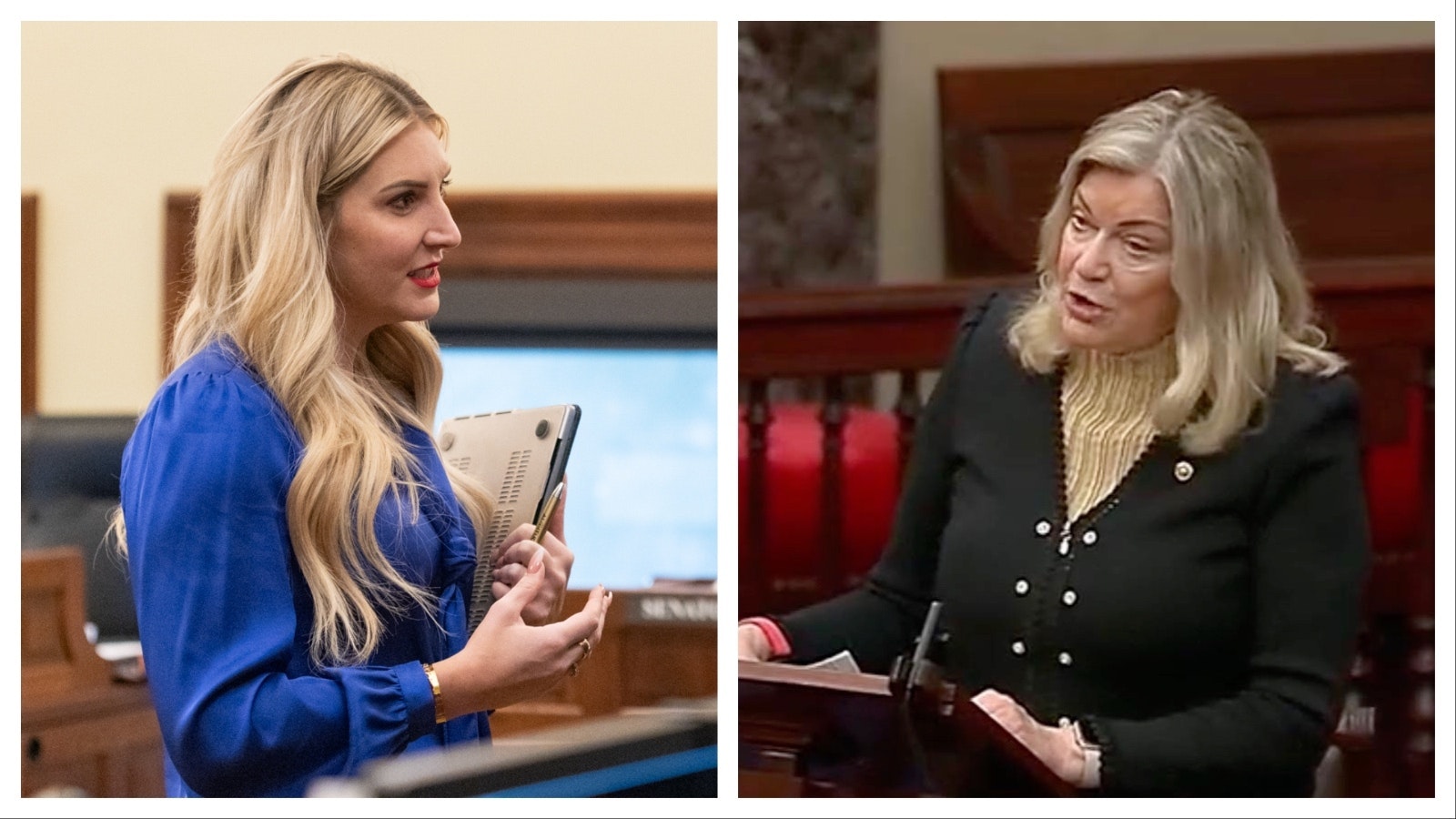By Clair McFarland, Cowboy State Daiily
clair@cowboystatedaily.com
The U.S. House could approve a $750-billion congressional spending package after that chamber reconvenes Friday. The Senate passed the bill Sunday by a 51-50 vote.
Favored by Democratic lawmakers, the sweeping tax reform bill, labeled the “Inflation Reduction Act,” is expected to have an easier path in the House than it did in the Senate. Democrats in the House hold a 220-210 advantage.
In the Senate last week, numerous Republican lawmakers tried to amend the act.
Wyoming political leaders have criticized the bill’s features, such as a 15% corporate tax on the most profitable businesses, tax favoritism toward renewable energy, and an $80 billion bolstering of the IRS’s enforcement capabilities that could lead to an 87,000-employee increase for the agency.
But a leading environmental advocate in Wyoming said the bill’s green-energy supports are only the start of necessary and belated climate change remedies to combat natural catastrophes.
Unleash The Leases
The U.S. Senators from Wyoming, Sen. John Barrasso and Sen. Cynthia Lummis, both Republicans, tried to add their own sponsored amendments to the bill, but those proposed changes were blocked.
Barrasso asked for language that would require the federal government to hold an extra oil and gas lease sale this year to make up for the many months during which President Joe Biden’s administration refused to offer lease sales last year.
Lummis offered an amendment, which did not reach a vote, that would have cut what her office called “unnecessary” new greenhouse gas monitoring programs and focus instead on “superfund remediation,” or hazardous sites cleanup.
“These job killing tax hikes do nothing to help the American people, only provide Democrats with a pathway to pay for insane environmental regulations,” said Lummis in a prepared statement. “This bill attacks our fossil fuel industry, which not only causes prices to go up for every family in Wyoming, but it also puts into place unrealistic measures to cut carbon emissions that will cost millions of jobs and hundreds of billions of dollars.”
Inflation… Reduction
The Tax Foundation, an analysis group in Washington D.C., theorized in a published analysis that the bill would do little to reduce inflation.
The bill could raise about $324 billion in federal revenue over the next 10 years based on the current business makeup in the U.S., according to the analysis. But, the group added, the tax “does not account for any behavior responses – that is, avoidance.”
“Actual revenue could be less if, for instance, companies respond by reducing reported financial income,” the organization wrote in its Aug. 2 analysis of the bill.
The Tax Foundation also estimated that the bill would cut 30,000 jobs and decrease U.S. wages and gross domestic product in the long run.
“By reducing long-run economic growth, this bill may actually worsen inflation by constraining the productive capacity of the economy,” reads the analysis.
Going Green
The bill includes numerous grants and incentives for renewable energy and environmental projects. For example, it would give the federal Environmental Protection Agency (EPA) $41.5 billion for environmental regulation and “climate justice” efforts such as reducing greenhouse gases and other pollutants, according to the bill text.
It sets aside another $3 billion for tribal and local governments and colleges partnering with non-profit organizations to combat pollution, such as from hazardous materials, extreme heat, wood-burning stoves and other possible polluters.
The U.S. Fish and Wildlife Service would receive $125 million for Endangered Species Act recovery plans. Another $32.5 million will be headed, if the bill passes, to the Council on Environmental Quality.
These are just a few of the numerous appropriations and carveouts in the bill text aimed at environmental improvement.
For Connie Wilbert, director of the Wyoming chapter of the Sierra Club, the bill is a much-needed statement about the nation’s resolve to fight climate change.
Wilbert, who is also a wildlife biologist, said climate change, “affects us right here in Wyoming just like it affects everybody else.”
She said the nation and Wyoming can’t transition away from fossil fuels fast enough, given that environmental impacts from burning fuels already are impacting the area.
“(We have) a short window of time… left to take enough action to prevent irreversible and devastating climate change,” she said. “And those words scare me.”
Wilbert said that, contrary to analyses anticipating energy jobs fallout, a national embrace of green-energy developments could actually support new jobs.
“That’s a huge benefit for all of us,” she said.
The bill still has problems, Wilbert added, noting that her organization will be working “very hard” to improve it. One of those problems may be the bill’s impact on people still living in “environmental injustice,” she said.
She said this bill requires three oil and gas lease sales per year on federal lands as a prerequisite for wind and solar developments on those lands.
“I wish this bill didn’t attempt to hold the development of renewable energy hostage to further potential development of fossil fuels,” said Wilbert. “That’s troubling, and that will not go unchallenged.”





